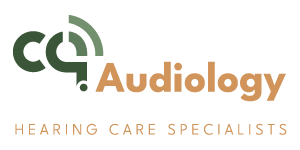Contact Us
We would love to speak with you.
Feel free to reach out using the below details.
Visit our main clinic
- T33 & 34A, City Centre Plaza, 24 Fitzroy Street, Rockhampton, QLD 4700
Get In Touch
- (07) 4848 6528
- reception@cqaudiology.com.au
Hours
- Mon-Fri 9:00AM - 5:00PM
- Sat 9:00AM - 12:00PM
Get a callback
Fill out the form below and we will contact you as soon as possible!
CQ Audiology Visiting Sites
BARCALDINE
Barcaldine 60 & Better Program
13 Willow Street
QLD 4725
BILOELA
Ace Medical Centre
48 Grevillea Street
QLD 4715
BLACKALL
Blackall Hospital
189 Landsborough Highway
QLD 4472
BLACKWATER
North Blackwater General Practice
14 Blain Street
QLD 4717
EMERALD
Lot 1 Pilot Farm Road
QLD 4720
MOUNT MORGAN
41 Morgan Strreet
QLD 4714
ROCKHAMPON CITY
T 33 & 34A City Centre Plaza
24 Fitzroy Street
QLD 4700
TAMBO
Tambo Multi Purpose Centre
26 Arthur Street, Tambo Queensland 4478
LONGREACH
North & West Queensland Primary Health Sercvies
19 Duck Street, Longreach Queensland 4730
YEPPOON
Keppel Bay Medical Centre
Shopt 26, Keppel Bay Plaza
64-67 James Street
QLD 4703

Experience Unmatched Clarity with Hearing Test Berserker Rockhampton
Why Do I Need a Hearing Test Berserker Rockhampton?
Are you looking for a hearing test Berserker Rockhampton? Have you ever considered how vital your hearing is to everyday life and how much you rely on it? From enjoying conversations to reacting to alarms, your ability to hear impacts numerous aspects of your life. If you’re finding it harder to pick up whispers or discern voices in a crowd, it might be time for a hearing test. These tests aren’t just for detecting hearing loss; they’re a proactive way to assess your auditory health, which can change subtly over time. What might seem like minor issues now could be early signs of hearing loss. Curious about what the signs are and how to recognise them?
Importance of Regular Hearing Tests
Regular hearing tests are crucial for maintaining your auditory health and catching any issues early. As you age, especially once you hit 60, it’s recommended that you have your hearing checked annually. This isn’t just about staying ahead of hearing loss; it’s about maintaining your overall well-being. Untreated hearing issues can lead to cognitive decline, so these regular check-ups can be a vital preventive measure.
If you’re younger, don’t think you’re off the hook. You should consider getting tested every 3-5 years. Changes in hearing can sneak up on you, and early detection offers more options for management and treatment. It’s not just about cranking up the volume on your devices; it’s about understanding and addressing any potential problems before they worsen.
For children, the stakes are even higher. Early hearing assessments are key to ensuring proper language development and educational progress. Without this early detection, children can face unnecessary challenges that affect their social and academic growth. So, whether it’s for yourself or your kids, sticking to a schedule of regular hearing tests can safeguard much more than just your ability to hear.
Signs You Need a Hearing Test
If you’re struggling to follow conversations or notice ringing in your ears, it might be time for a hearing test. These signs are key indicators that your hearing mightn’t be as sharp as it used to be. Additionally, if you find yourself frequently asking people to repeat themselves or feeling that others are mumbling, these could be further signs of hearing loss.
Social settings might also pose challenges. If you often feel left out of conversations because you can’t catch every word, it’s a strong hint that your ears need checking. It’s not just about the volume of speech; understanding speech amidst background noise is a common difficulty for those experiencing hearing issues.
Moreover, if you’re concerned about a child’s hearing, perhaps noticing they don’t respond to sounds or calls, a hearing test becomes even more imperative. Early detection is crucial and can make a significant difference in management or intervention strategies.
Don’t just rely on online tests for an accurate assessment. While they can provide some initial insight, confirming your hearing status with a professional audiologist or doctor is essential. They can offer a comprehensive evaluation and guide you on the next steps to take.
Types of Hearing Tests Available
You’ll find several types of hearing tests available, each designed to accurately assess different aspects of your hearing health. Pure tone audiometry is a common choice, particularly useful for adults and older children. It involves listening to sounds at various pitches and volumes through headphones to determine the softest sounds you can hear at different frequencies. This test helps pinpoint the degree of hearing loss and identifies specific frequency weaknesses.
Another vital test is tympanometry, which evaluates your middle ear’s health by measuring eardrum movement and middle ear pressure. This test doesn’t measure hearing sensitivity directly but is crucial for diagnosing conditions that may affect your middle ear, like fluid build-up or eardrum perforations.
For babies and young children, who can’t respond to standard hearing tests, alternative methods are used. These include behavioral tests, where reactions to sounds are observed, and objective tests like otoacoustic emissions and auditory brainstem response, which check inner ear health and auditory pathway function without needing an active response from the child.
Understanding these options will help you select the most suitable test based on your specific symptoms or concerns, ensuring comprehensive assessment and management of your hearing health.
Hearing Tests for Different Ages
Hearing tests are essential at every stage of life to ensure your hearing health is properly monitored and maintained. As you grow, your hearing needs change, making regular check-ups vital. For infants and young children, early testing is crucial. It not only confirms normal hearing development but also plays a significant role in language acquisition and educational success. If there’s any sign of hearing impairment, identifying it early can make a big difference in a child’s overall development.
As an adult, you shouldn’t overlook the importance of hearing tests either. Whether you’re in your twenties or advancing into your senior years, regular hearing assessments are key to catching any decline in hearing ability early on. This proactive approach helps in managing potential hearing loss effectively, ensuring you maintain a good quality of life and stay connected with your surroundings.
What a Hearing Test Involves
Do you need a Hearing Test Berserker Rockhampton? When you undergo a hearing test, an audiologist will evaluate your ability to hear various sounds and determine the severity of any hearing loss. The process starts with a review of your medical history and a discussion about any hearing concerns you’re experiencing. This conversation helps the audiologist tailor the test to your specific needs.
Next, you’ll be subjected to different types of auditory tests. One common test involves wearing headphones through which sounds at various pitches and volumes are played. You’ll indicate when you can hear a sound, usually by pressing a button. This test, known as pure tone audiometry, helps pinpoint the quietest sounds you can hear at different frequencies, which is crucial for identifying the type and extent of hearing loss.
Another test might include speech audiometry, where you’ll listen to spoken words at different volumes to assess your ability to understand speech amidst background noise. This test reflects real-world listening conditions and is vital for understanding how your hearing loss affects daily communication.
The audiologist might also conduct tests to check the health of your ear canal and eardrum, ensuring there are no physical conditions affecting your hearing. These comprehensive assessments help in crafting the right intervention strategies.
Understanding Your Hearing Test Results
Interpreting your hearing test results is crucial for understanding the specific nature and severity of your hearing loss. When you receive the results, you’re essentially looking at a detailed map of how well you can hear various frequencies and volumes. These outcomes help pinpoint exactly what type of hearing loss you have—whether it’s sensorineural, conductive, or a mix of both.
Your audiologist will use these results to guide the treatment options and interventions that are best suited for your condition. They’ll consider how different sounds are perceived at different volumes, which is essential for selecting the right hearing aids or suggesting other therapeutic approaches. It’s not just about amplifying all sounds; it’s about tailoring the amplification to improve clarity and understanding.
Moreover, understanding your test results empowers you to take an active role in managing your hearing health. You’ll know what sounds are problematic for you and how severe the issue is, which is vital for setting realistic expectations for your treatment. Regular follow-ups, based on these initial results, are critical. They allow your audiologist to monitor your progress and adapt your treatment plan as needed, ensuring you maintain the best possible hearing experience.
How to Arrange a Hearing Test
You can easily schedule a hearing test by contacting an audiology clinic directly. There’s no need for a doctor’s referral, so you can book an appointment at your convenience. This straightforward approach saves you time and simplifies the process, allowing you to address any hearing concerns promptly.
If you’re wondering about costs, check if you qualify for the Australian Government Hearing Services Program, which offers fully subsidised tests for eligible individuals. You can find out if you’re eligible by visiting their online platform. This program is a fantastic resource, ensuring that financial constraints don’t prevent you from getting the care you need.
Additionally, if you have a referral from an Ear, Nose, and Throat (ENT) specialist, you might be eligible for a Medicare rebate, which can further reduce the cost of your hearing test. It’s worth checking into if you require a more detailed examination.
For more information on arranging a hearing test, several resources are available online. Websites dedicated to hearing health often provide detailed guidance on how to proceed with booking an appointment and explain what to expect during the test, ensuring you’re well-prepared for your visit
DISCLAIMER: The content on our site is intended for educational purposes only and should not be interpreted as an endorsement or recommendation of any treatments or products without a comprehensive hearing assessment. Users should seek professional advice and fully understand any potential side effects or risks before starting any treatment. Products mentioned on our site are not available for purchase by the public without prior consultation with a hearing health expert.
